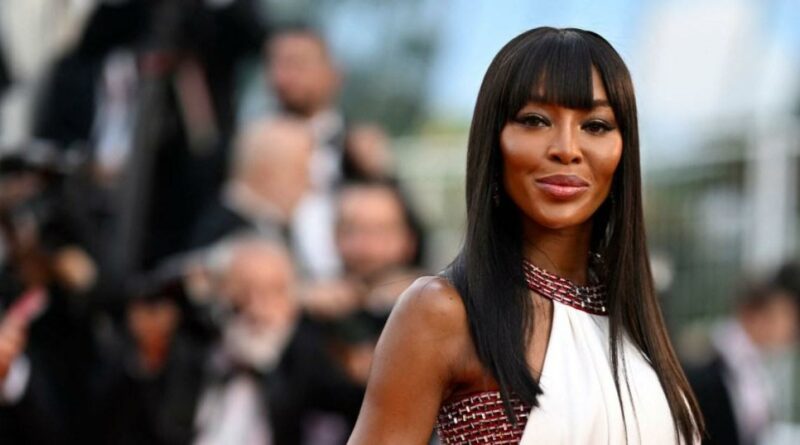The backlash to Naomi Campbell's PLT collection isn't because she's Black
As soon as I saw Naomi Campbell’s collaboration with fast-fashion brand PrettyLittleThing (PLT), I was disappointed but not surprised.
This was just the latest in a stream of out-of-touch celebrities working with unsustainable brands that we’ve seen before, like Kourtney Kardashian with Boohoo or Laura Whitmore with Primark.
And just like in the cases above, there was profound backlash online to Naomi, with people sharing their disappointment.
So how did the supermodel respond?
She appeared to double down on her decision to do the collaboration, stating in a recent interview with W Magazine that she did ‘understand people’s criticism’, but that she did it ‘from a standpoint of getting to know the audience of the younger generation’.
It was what came next that really shocked me.
She seemed to attribute the criticism – not to PLT’s reputation for unethical business practices, but – to racism, stating: ‘There are so many other fast-fashion brands out there — do people say anything about other models when they work with them? Do they say anything when other caucasian models have worked with fast-fashion brands and done collaborations? They’ve said not a word. They’ve praised them.’
As a Black woman myself, it felt like an insult. I’ve encountered racism – as I know Naomi has – but to seemingly attribute this criticism to that is missing the point entirely.
In my view, no one experiences the effects of racism in the fashion industry more than garment workers, who are mostly women of colour. The fast-fashion business model thrives on the exploitation of these people, as it is a way that they can achieve cheap prices – like a dress for 8p – and still achieve high profit margins.
Criticism of PrettyLittleThing has been rife since it was co-founded by brothers Umar and Adam Kamani in 2012, then acquired by their father, Mahmud, in 2017.
In fact, Good On You – a website that rates brands on their sustainability credentials – deemed it ‘not good enough’ last year because it ‘doesn’t use lower-impact materials’ and there is ‘no evidence it has taken meaningful action to reduce or eliminate hazardous chemicals, nor does it implement any water or waste reduction initiatives’.
In 2020, an undercover Sunday Times investigation reported that its parent company (Boohoo Group PLC) were allegedly paying workers in their Leicester factory as little as £3.50 per hour.
At the time, Boohoo said the conditions at the factory, Jaswal Fashions – who they insisted were not a ‘direct supplier’ – were ‘totally unacceptable and fall woefully short of any standards acceptable in any workplace’.
So it baffles me that Naomi Campbell can work with this company. On top of that, it is also simply not true that caucasian women haven’t been called out for similar fashion collaborations.
Kourtney Kadashian received huge backlash for her collaboration with Boohoo last year. As a sustainability professional and activist, I wrote about it at the time, stating: ‘If Boohoo really cared about sustainability, they would hire someone who is actually knowledgeable about the subject to work with them, not a celebrity that’s best known for using private jets like taxis.’
Then in April this year, protestors staged a demonstration outside Molly Mae Hague’s PrettyLittleThing fashion show – including fellow former Love Islander Brett Staniland. I fully supported this action because the voices of garment workers need to be heard.
After reading Naomi Campbell’s comments about racism, I felt really strongly that she needed to understand why people were so upset. So I took to social media with an open letter urging her to ‘do better’.
I wrote: ‘Attributing this to racism is an insult to all of us but it’s the biggest insult to the people of colour who are disproportionately affected by the effects of climate change and are routinely exploited by unethical fast-fashion businesses in the global north.’
More from Platform
Platform is the home of Metro.co.uk’s first-person and opinion pieces, devoted to giving a platform to underheard and underrepresented voices in the media.
Find some of our best reads of the week below:
An anonymous writer shares the moment that he realised he was groomed as a 14-year-old by a man in his 30s.
Metro.co.uk’s Josie Copson paid tribute to Wilko, a trip to which accompanied all of her life milestones.
Lowri Llewelyn was attacked while travelling solo through Scotland. She credits a stranger she met at her hostel the day before with saving her life.
And Heidi Crowter describes her perfect first date to her now-husband, James. The couple, who both have Down’s syndrome, instantly realised the other was their soulmate.
I don’t know whether Naomi has seen my letter or will read this piece, but I hope that she does.
I would urge Naomi to reconsider her comments about racism and acknowledge the valid reasons she is being called out. We all need to do our part to live more sustainably, but those with a platform can really make a difference if they use their position of influence for good.
Naomi has always been a brilliant advocate for Black models in the fashion industry. I’d love to see her using her platform to advocate for garment workers too.
Do you have a story you’d like to share? Get in touch by emailing [email protected].
Share your views in the comments below.
Source: Read Full Article


